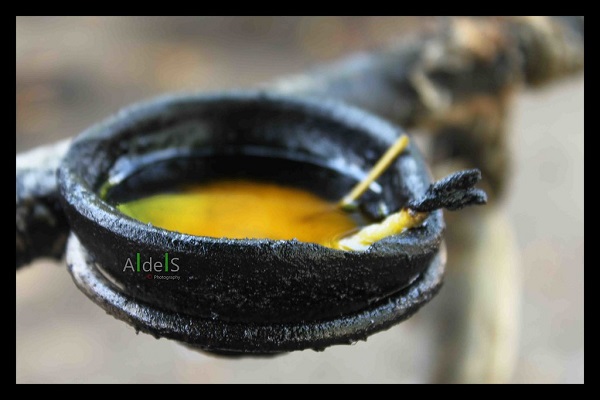FWP:
SETS == VARNAH
The speaker is, he implies, an 'extinguished lamp' (or, literally, a 'killed' one). In what sense would be-raunaqī , with all its complexities of meaning, be a gain or 'profit' to him? There are surprisingly many possibilities:
=Because now he gets to live longer, instead of quickly burning
himself out.
=Because now he no longer suffers the pain of burning, and could be cool and
comfortable instead.
=Because it's proper: when his bright burning prime of life is over, he should
withdraw from the 'heat' of the action and live quietly.
=Because now he's dead, and it's better to be dead than to be alive.
=Because now he's not really dead, since he can always be re-lit again.
=Because it's so unworthy and incomplete to remain half-burnt that only be-raunaqī
is a proper way to show his humiliation and regret.
=It's not really a profit to him at all, but it would be, if only his heart
would cooperate (using the other, contrafactual sense of varnah ).
The interactions and oppositions among these meanings quickly take us into the domain of the central paradox: it's the fiery, self-consuming process of (passionate) living that kills the lover, just as the very process of burning gradually 'kills' the lamp as it burns itself out. Is the lover better off half-burnt (like a lamp or candle that's been extinguished), with the resulting overtones of frustration and incompleteness? And if he's half-burnt, is he then alive, or dead, or half-alive, or half-dead? Or is he better off fully burnt (like a lamp or candle that has burnt itself out and can never be relit)?
These questions are emphasized by the vocabulary of profit and loss brought in by the word 'profit' [sūd]; this choice of word readily brings to mind both 'loss' [ziyāñ] and the word nafʿa , which also means 'profit', as can be seen in Nazm's and other commentaries. The commercial overtones of 'profit' and 'loss' can be seen very clearly in {3,3}. This evocation of a balance sheet works well with the questions about consumption and consumedness that the verse raises: an oil lamp, after all, is a perfect illustration of the process.
And of course, the tone of the verse can be melancholy,
rueful, sarcastic, bitter, or neutrally descriptive-- other than the reader, who's to decide?

Nazm:
That is, the raunaq of the burning of passion is entirely a cause of loss [ziyāñ] for the heart. Look at the lamp, and heed the moral lesson: for it, burning is a cause of loss, and in 'silence'/extinguishedness [ḳhāmoshī] and be-raunaqī there is profit [nafʿa].
== Nazm page 155